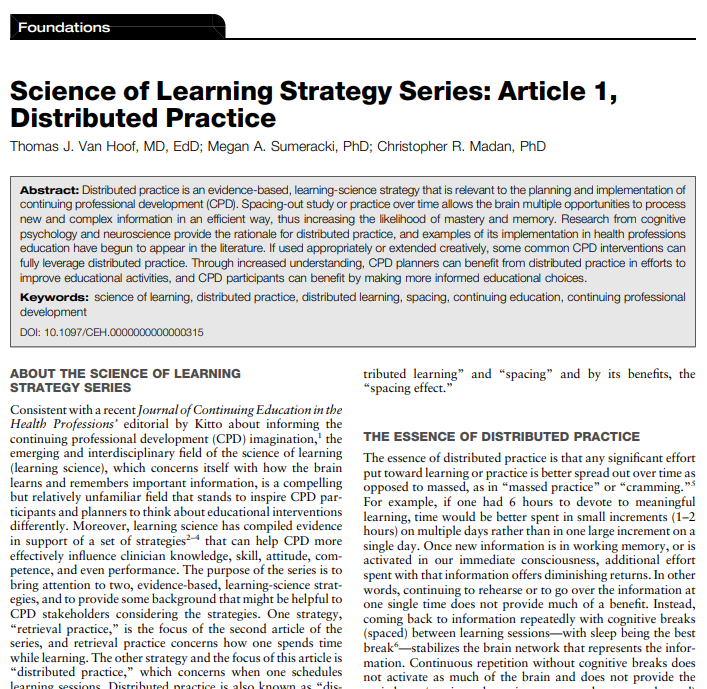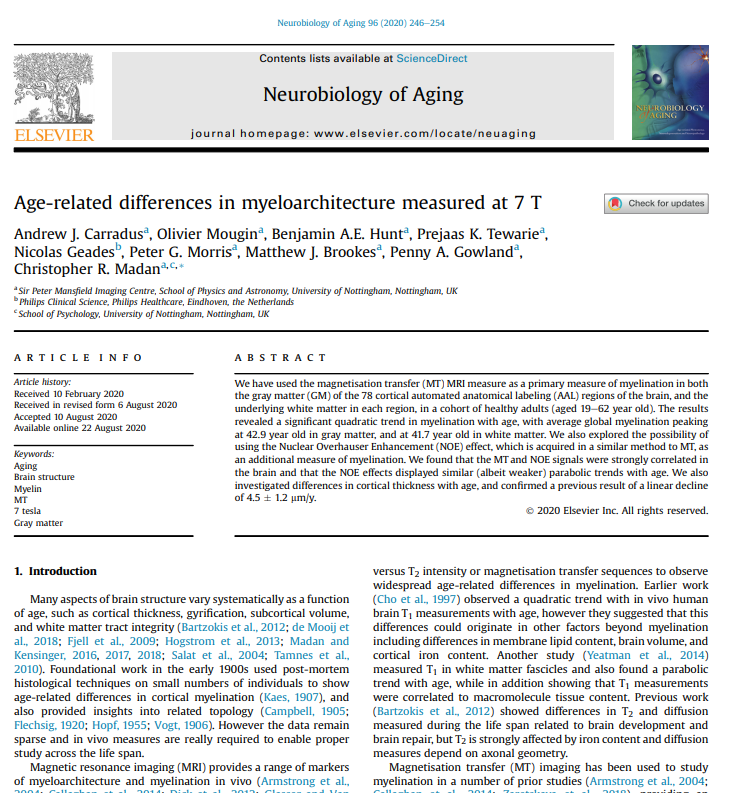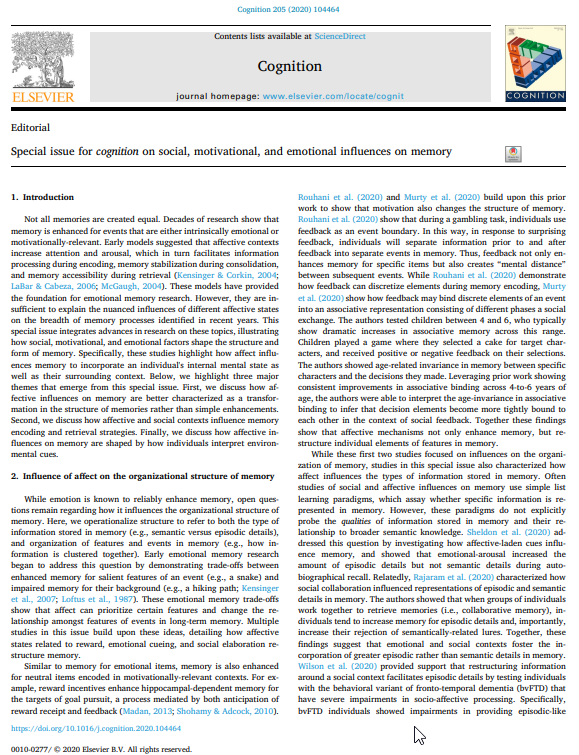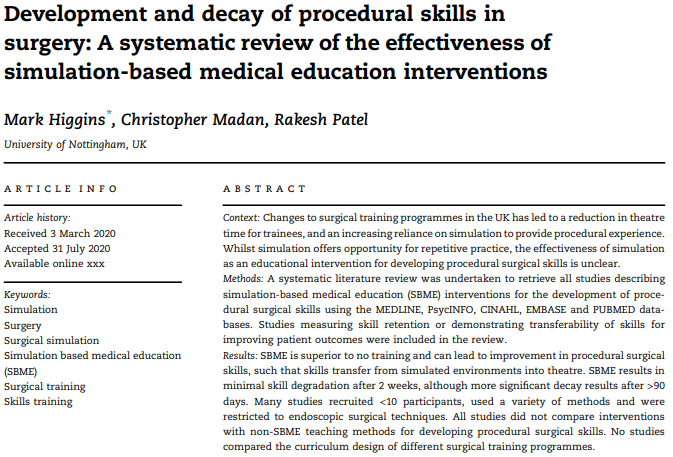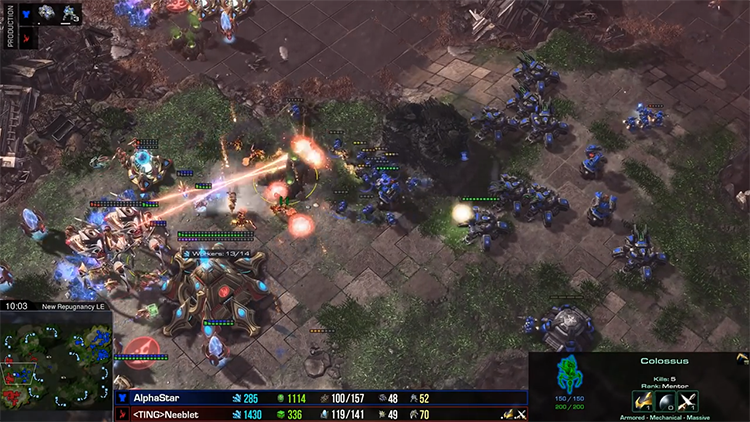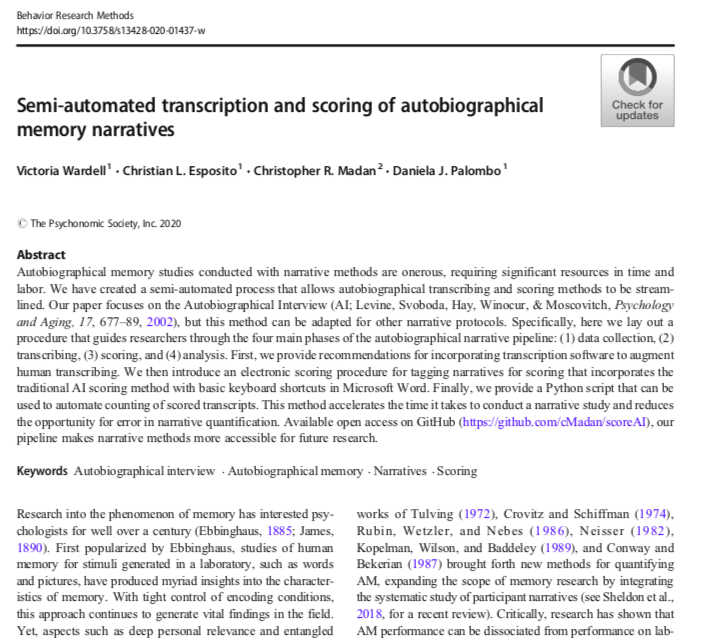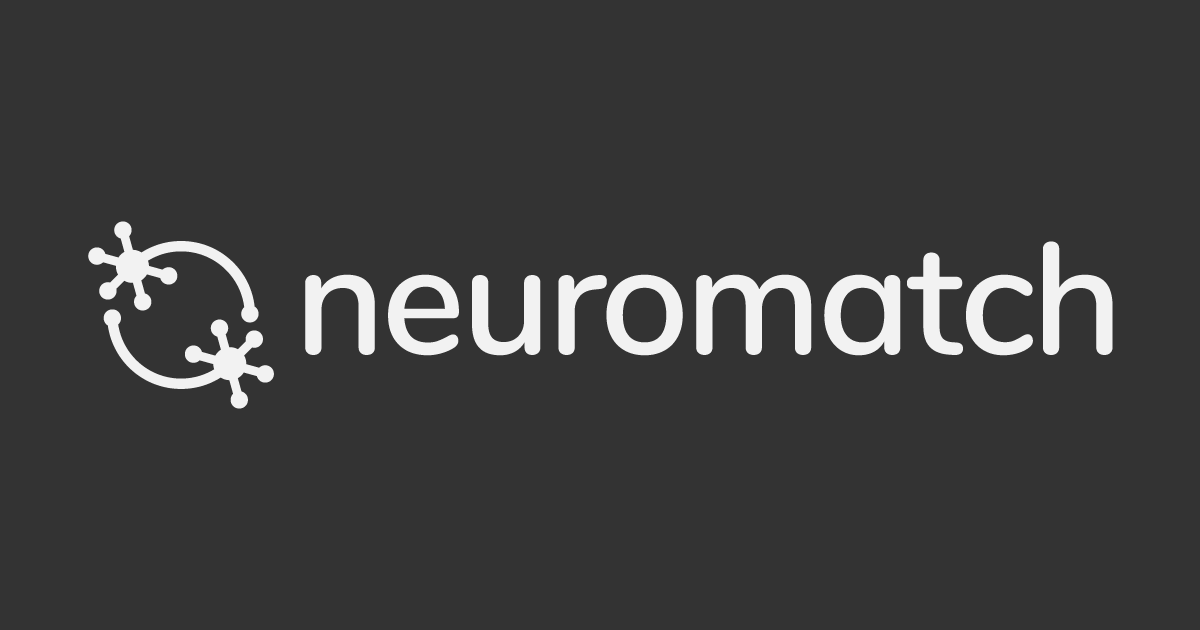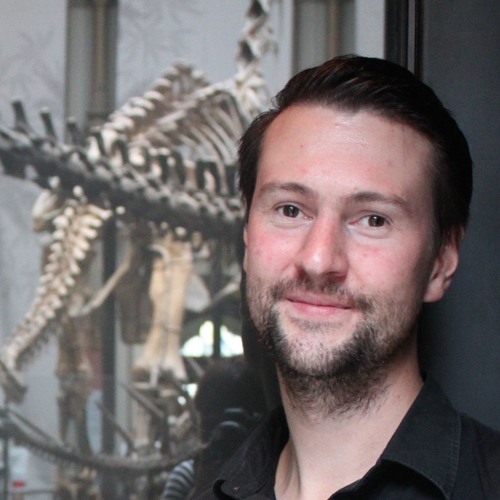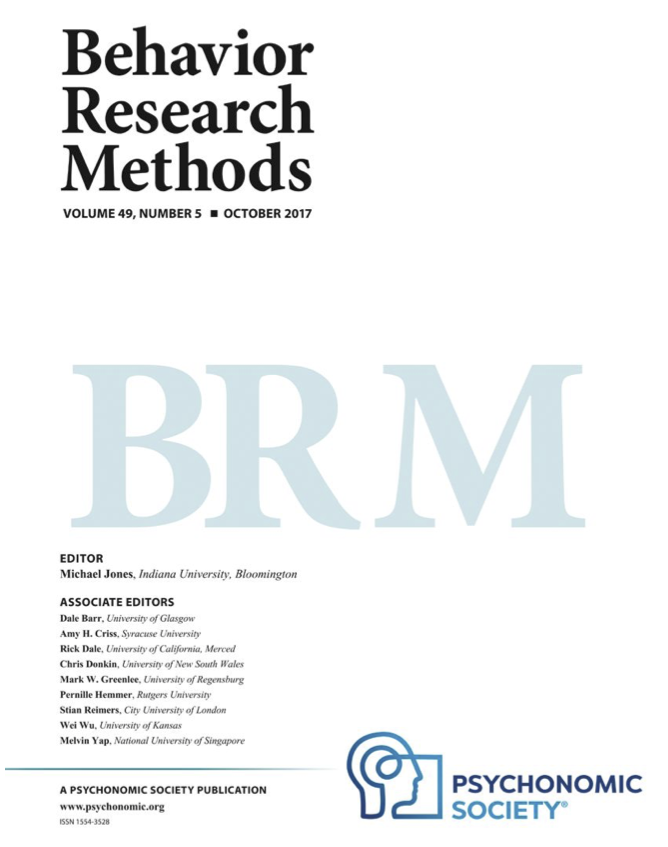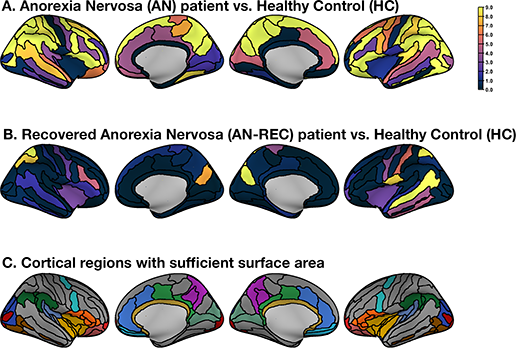Lab Updates
Science of Learning Strategy Series: Article 1, Distributed Practice
First paper in a new articles series, with Tom Van Hoof and Megan Sumeracki!
“Distributed practice is an evidence-based, learning-science strategy that is relevant to the planning and implementation of continuing professional development (CPD). Spacing-out study or practice over time allows the brain multiple opportunities to process new and complex information in an efficient way, thus increasing the likelihood of mastery and memory.”
Age-related differences in myeloarchitecture measured at 7 T
First paper out with collaborators at the SPMIC!
“We have used the magnetisation transfer (MT) MRI measure as a primary measure of myelination in both the gray matter (GM) regions of the brain, and the underlying white matter in each region, in a cohort of healthy adults (aged 19–62 year old). We also explored the possibility of using the Nuclear Overhauser Enhancement (NOE) effect, which is acquired in a similar method to MT, as an additional measure of myelination.”
Special issue for Cognition on social, motivational, and emotional influences on memory
Our special issue in Cognition is now complete!
“[…] we highlight three major themes that emerge from this special issue. First, we discuss how affective influences on memory are better characterized as a transformation in the structure of memories rather than simple enhancements. Second, we discuss how affective and social contexts influence memory encoding and retrieval strategies. Finally, we discuss how affective influences on memory are shaped by how individuals interpret environmental cues.”
Presentations at NOWCAM 2020
Six presentations at NOWCAM 2020 on on-going collaborative projects with Daniela Palombo and students in her lab!
“Semi-automated processing of autobiographical memory narratives”
“Emotion and elaboration: The impact of emotion on autobiographical memory recall”
“Generalization of emotion: The transfer of negative valence to novel episodes”
“Exploration of retrograde effects of emotion on memory”
“Retrograde effects of emotion on memory for related events”
“Can imagining the future increase pro-environmental tendencies?”
Development and decay of procedural skills in surgery: A systematic review of the effectiveness of simulation-based medical education interventions
First medical education paper in collaboration with Rakesh Patel!
“Changes to surgical training programmes in the UK has led to a reduction in theatre time for trainees, and an increasing reliance on simulation to provide procedural experience. Whilst simulation offers opportunity for repetitive practice, the effectiveness of simulation as an educational intervention for developing procedural surgical skills is unclear.”
Considerations for Comparing Video Game AI Agents with Humans
Here I discuss some considerations and approaches for making AI agents comparable to humans–with an emphasis on AlphaStar, Atari 2600 AI agents, Rubik’s Cube solving algorithms, and AlphaGo.
Like comparative psychology, but with machines. I consider this my first “robot psychology” paper.
Semi-automated transcription and scoring of autobiographical memory narratives
New paper with Daniela Palombo and students in her lab!
“Autobiographical memory studies conducted with narrative methods are onerous, requiring significant resources in time and labor. […] Specifically, here we lay out a procedure that guides researchers through the four main phases of the autobiographical narrative pipeline: (1) data collection, (2) transcribing, (3) scoring, and (4) analysis.”
Virtual patients will help train future medics
Experts from the University of Nottingham and Isabel Healthcare will create an online learning platform enabling medical students and junior doctors to develop essential skills, even without face-to-face time with patients, thanks to funding from Innovate UK.
The funding will allow experts to create a learning platform using a unique combination of virtual cases and AI powered clinical decision support technology, that will help them to develop the knowledge, problem-solving and decision-making skills they need.
Neuromatch talk
Dr. Madan gave a short talk at Neuromatch 2.0, providing an overview of the fractal dimensionality work.
In memorium of Jon Tennant
I am very sad to say that our friend and collaborator, Dr. Jon Tennant, died in a motorcycle accident today.
Associate Editor at BRM
Dr. Madan is now proudly an associate editor for the journal Behavior Research Methods.
Cortical Complexity in Anorexia Nervosa: A Fractal Dimension Analysis
New paper with collaborators at the University of Padua!
“In this study, we aimed at exploring the morphology of cortical areas by means of FD in 58 female patients with Anorexia Nervosa (AN) (38 currently underweight and 20 fully recovered) and 38 healthy controls (HC). […] FD seems to represent a feasible method to explore cortical complexity in patients with AN since it demonstrated to be sensitive to the effects of both severity and duration of malnutrition.”
